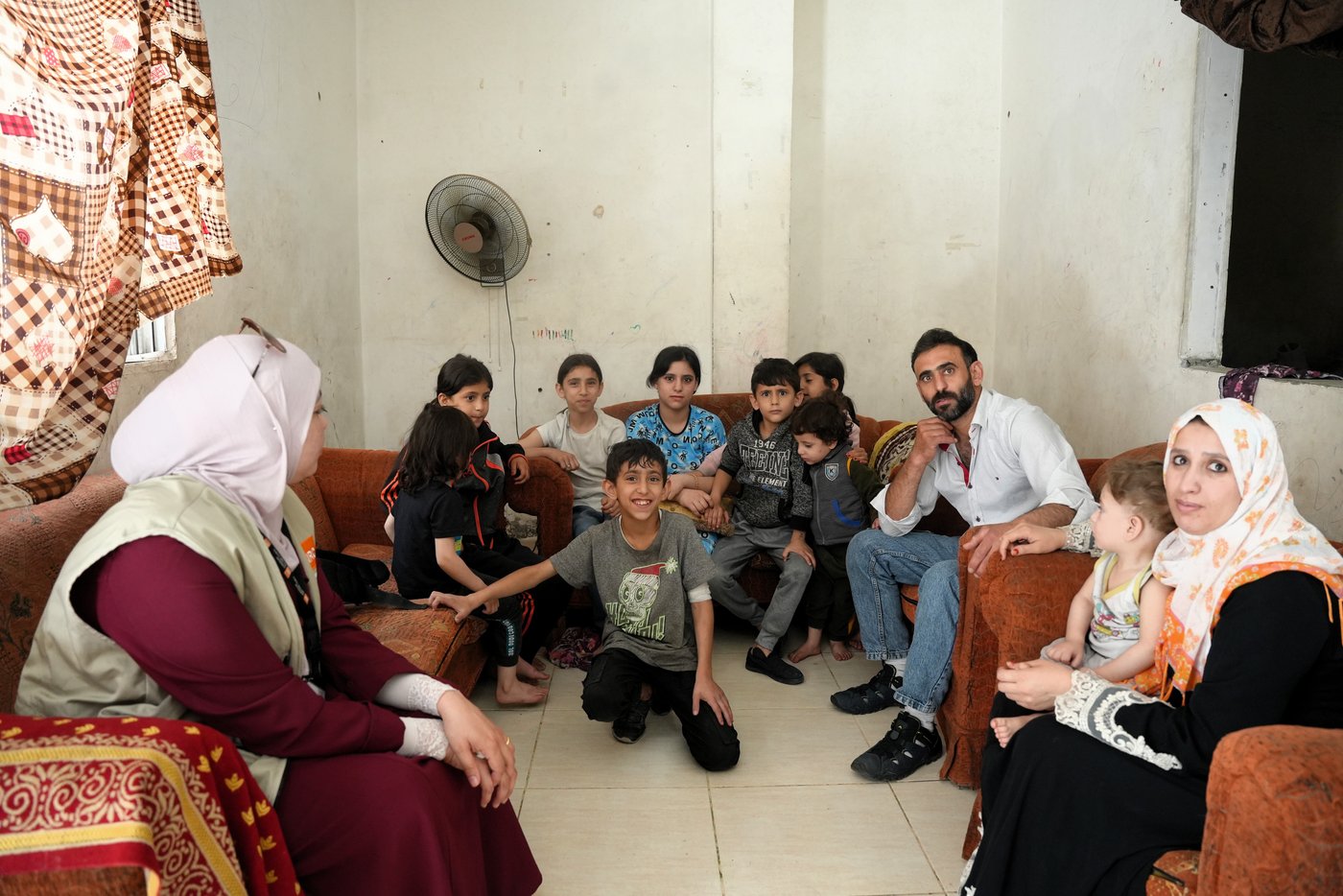When we arrived at the front door, the children paused their games to greet us with cheerful curiosity. The air in the small flat was thick and stale. "It's always like this," said his wife, Bushra. "The two windows we have open onto a shaft - there's no air, no light." Still, the sounds of children playing filled the space with warmth.
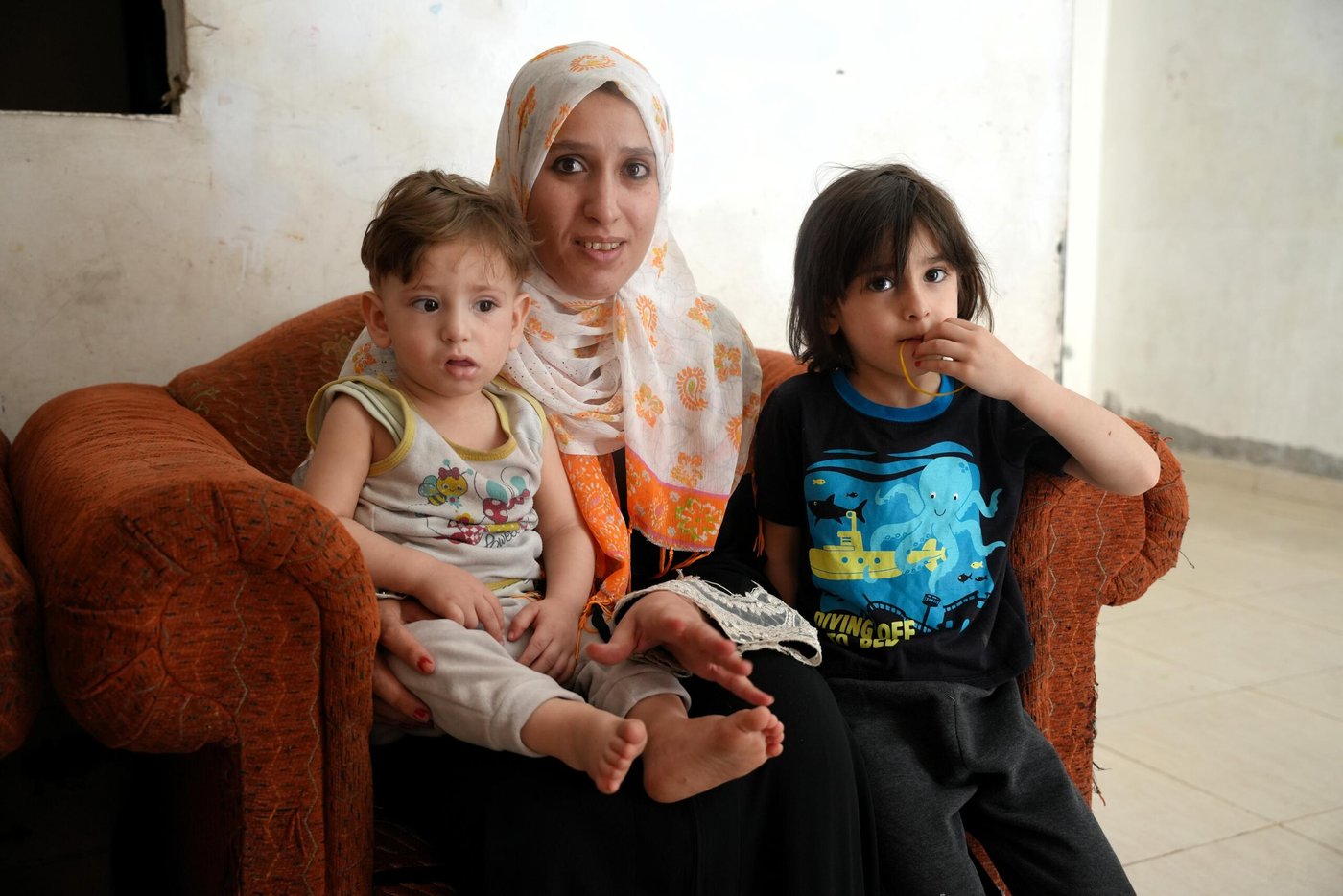
A fragile life, held together by love
Bushra and Nidal, refugees from Homs, Syria, have spent more than a decade in Jordan, building a life from uncertainty. They are parents to nine children. Their youngest, Ameer, was born in Jordan just over a year ago. Their home may be cramped and dim, but it shelters a family bound by love, endurance and a dream of going home.
That dream is growing more urgent. “They tell me my father is dying,” Bushra says quietly. “It’s been 12 years. I need to see him. I want my children to know their family, to return while we still have the chance.” Her brothers have already gone back to Syria following the fall of the former government. Now she longs to do the same.
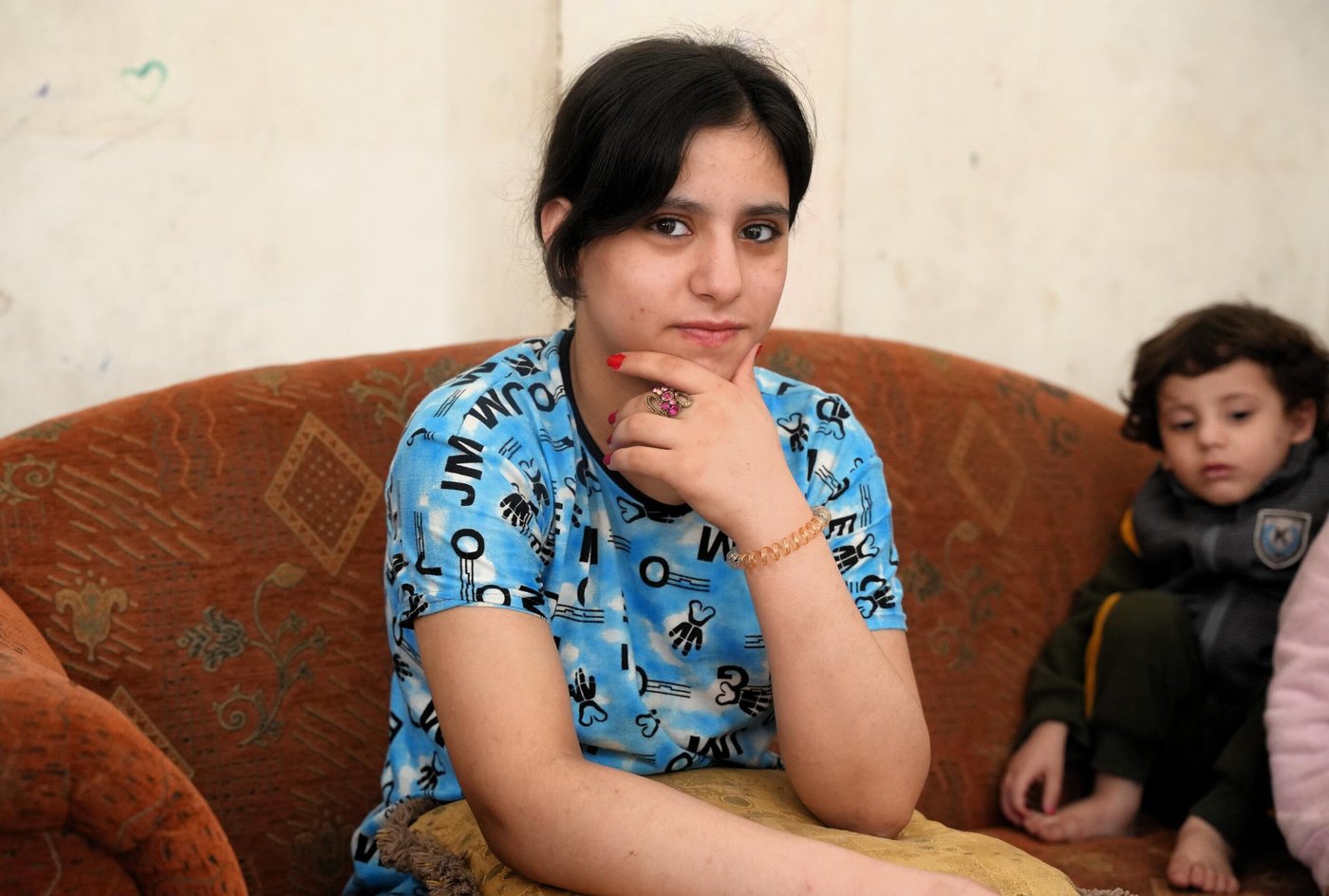
The cost of being invisible
Bushra and Nidal fled Syria in 2013. Their home had been bombed, and Bushra’s identity documents were lost in the rubble. Without official papers or a registered marriage, she entered Jordan under her sister-in-law’s name. Their legal status remained precarious for years.
They first lived in Zaatari refugee camp, where Nidal and his late father worked tirelessly to support the extended family. “We started from nothing,” Nidal says. “My father and I did everything we could to keep everyone afloat.”
But once they left the camp, the burden grew heavier. Work permits for Syrians are costly and difficult to obtain. Decent employment has been almost impossible to find.
Today, Nidal works occasionally as a porter, a physically demanding job that pays just a few Jordanian dinars when work is available. Every day, he sets out hoping for an opportunity. “Every day, I do my best to bring something home,” he says. “But some days, my best just isn’t enough.” The weight of providing for a large family without a stable income has taken its toll - not just financially, but emotionally too.
Two of the children show signs of developmental and sensory challenges. One struggles to hear except for very loud sounds, and another has noticeable difficulty with speech. But without access to specialist care, their conditions remain undiagnosed.
“The doctor at the clinic said her hearing is fine, but that we should see a specialist,” Bushra says, referring to her daughter. “I didn’t go. We simply don’t have the money.”
Their daughter Aisha - from Nidal’s previous marriage - suffered a devastating eye injury. “Her cornea ruptured,” he recalls. “I begged the doctors to take my eye for Aisha if it would help her.” For three months, he could not work. His days were consumed with hospital visits and medical appointments. To pay for her surgery, the family sold nearly everything they owned: the gas cylinder, the TV screen, and even their small fridge.
Bushra took a small loan from a local women’s lending group to help cover the medical costs. “We want to repay it so we can leave the country,” she says, “but it keeps accumulating.” Even sending them to school is a struggle. “We do everything we can,” Nidal adds. “But it’s never enough.”
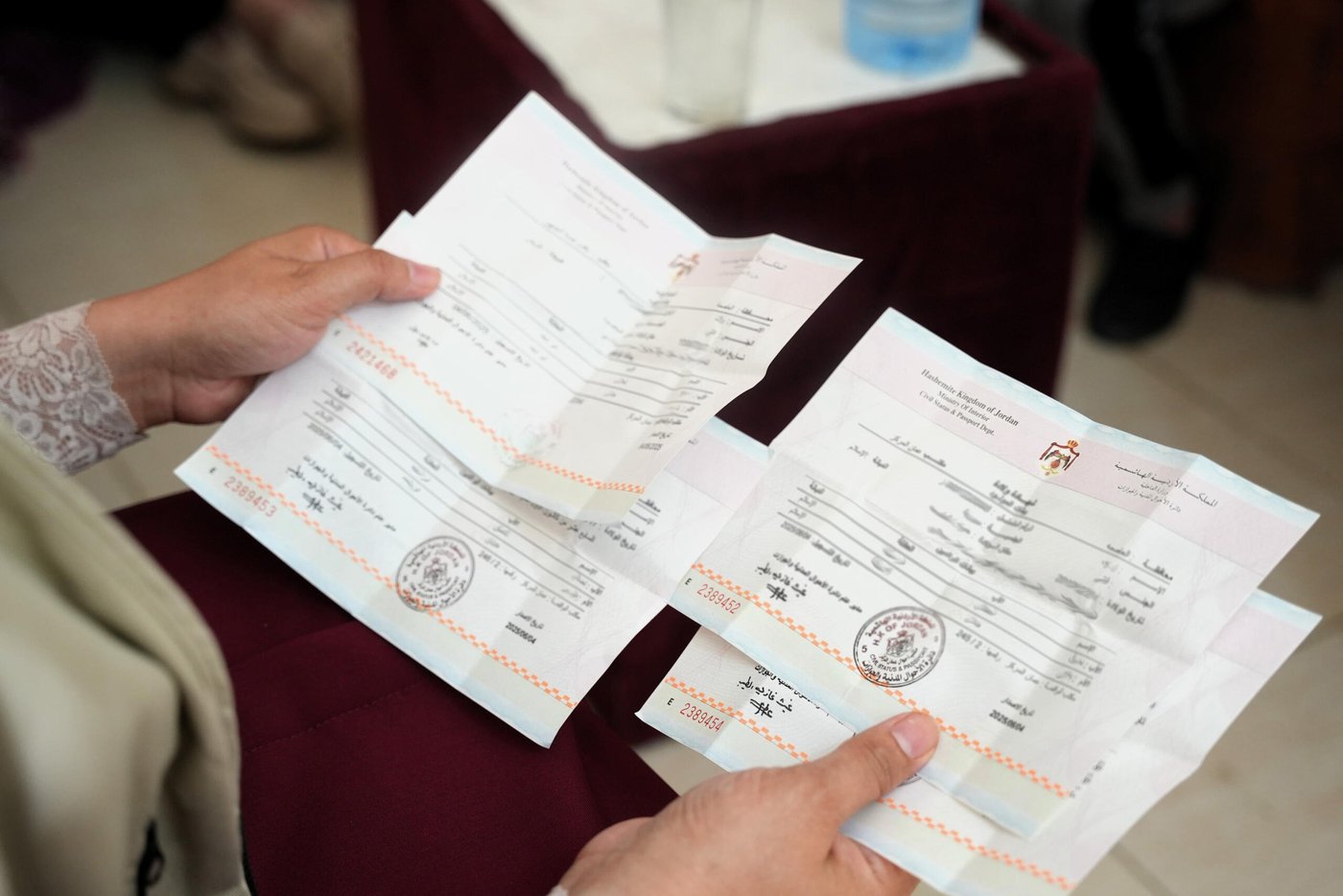
One last step before they can return
Eventually, with support from the Norwegian Refugee Council’s (NRC) information, counselling and legal assistance (ICLA) programme, Bushra and Nidal began the process of resolving their legal status. Because their marriage was not officially registered at the time, they could not legally register the births of their children. Instead, their first four children born in Jordan were registered under the names of Nidal’s brother and his wife, resulting in incorrect civil records. After their marriage was legally documented, Bushra and Nidal were able to register their three younger children without issue. With NRC’s guidance, they also corrected the records for the older four, ensuring all their children were legally recognised as their children.
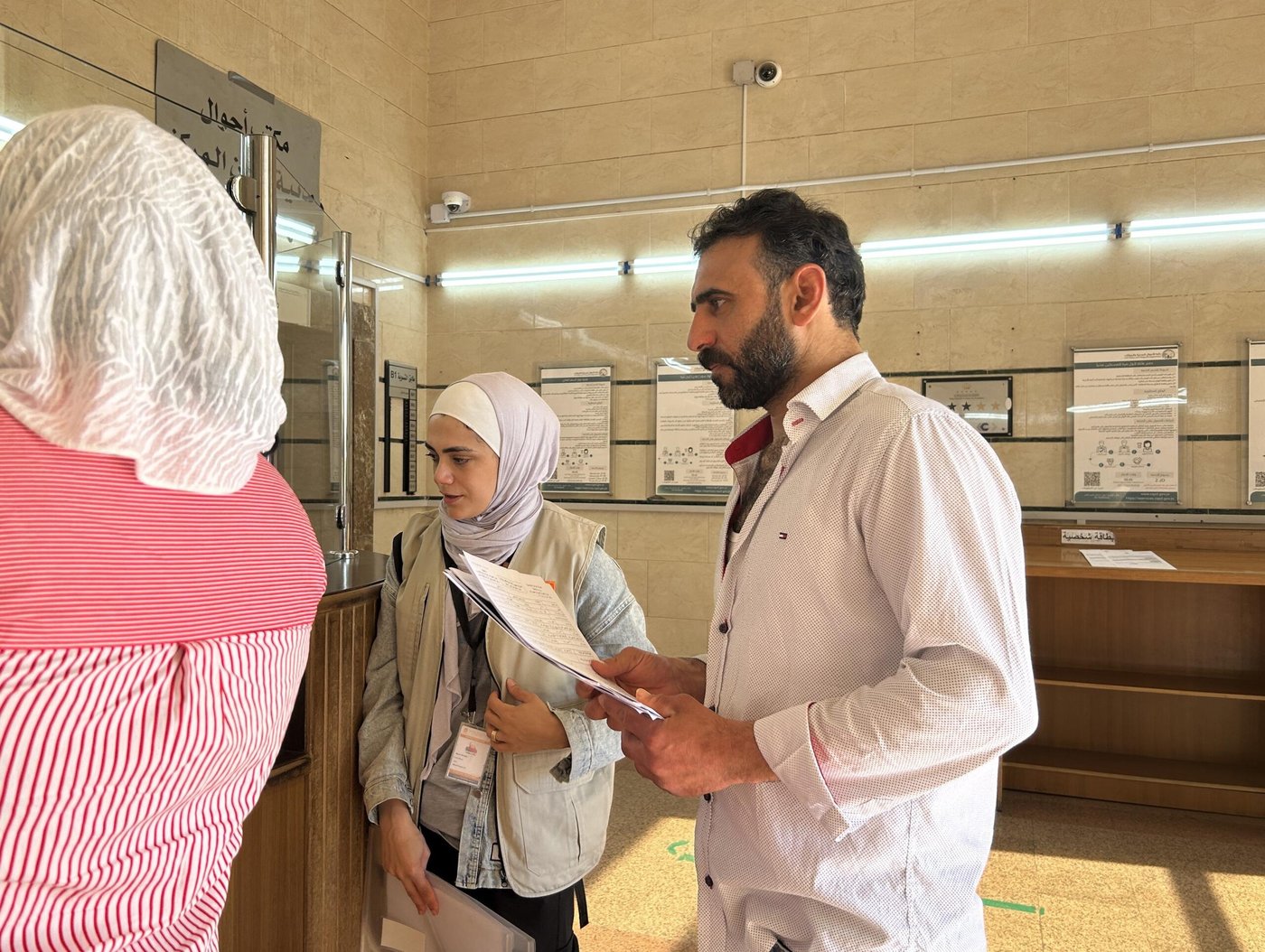
Today, all of their children have birth certificates, except one.
Their youngest, Ameer, recently turned one. Because his birth was not registered within the legal timeframe, a court order is now required to issue his birth certificate - the final document the family needs in order to return to Syria. NRC is supporting them through this legal process.
Without the document, they cannot leave. “We are so close,” Bushra says. “We’ve come this far. My children now have their names, their rights. But we can’t go without Ameer.”
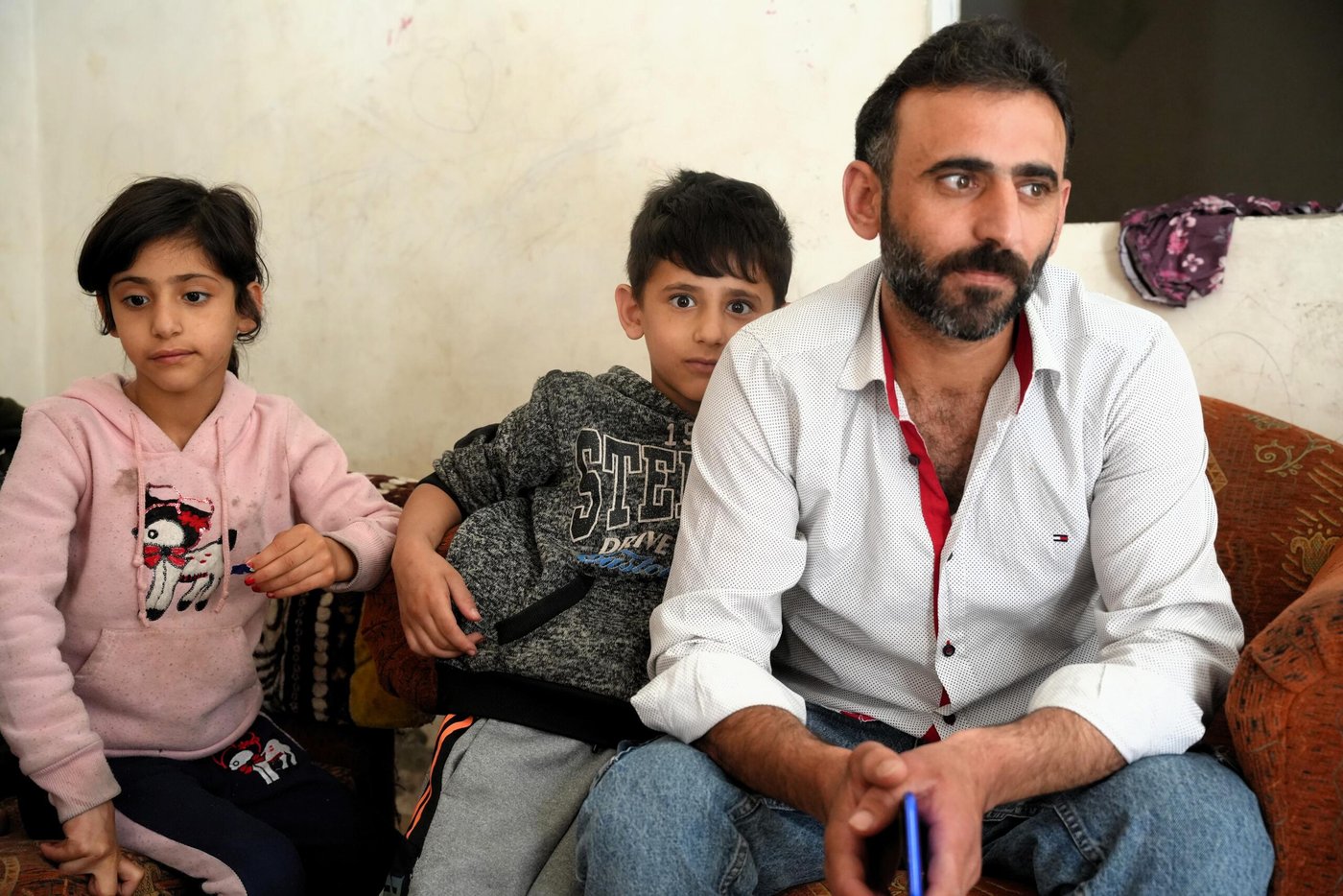
Closer than ever
Their journey has been long and full of hardship, but with patience and legal support, a way forward is finally taking shape. Nidal may stay behind to continue repaying the family’s debts - a sacrifice he is prepared to make so Bushra and the children can return. “I just want to give them hope for a better future,” he says. “We’ve held on all these years. Now we want to go home.”
Looking beyond the immediate struggles, Nidal holds onto a deeper hope:
“If you have a job in Syria, you will be fine. Let’s rebuild Syria. This is our home, and we want to rebuild it - for our children and for ourselves.”
This initiative is implemented with funding provided by the United States Government.
Sign up to our newsletter to read more stories from around the world.


